Years
Programme

Sharanya Narayani International School is authorized to offer the Primary Years Programme (PYP) of the International Baccalaureate Organization (IBO) which provides a comprehensive curriculum framework for teaching and learning in the primary years (Grades Kindergarten – 5), while insisting that students fully explore their home culture and language.
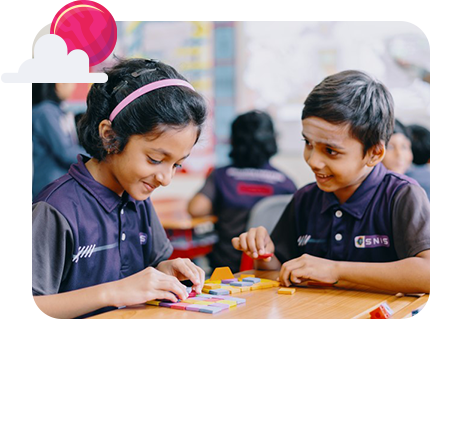
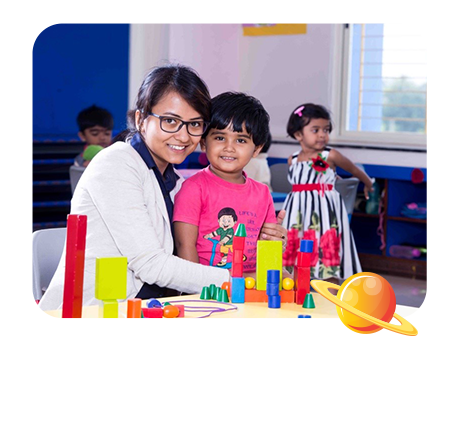
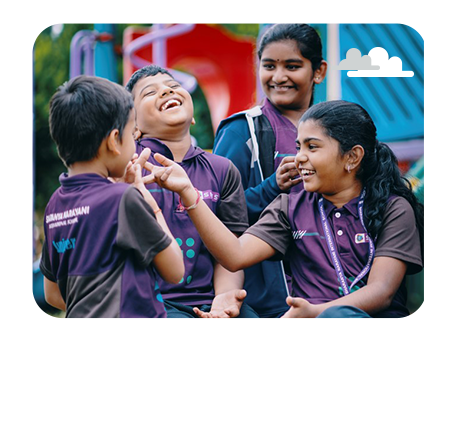
“The object of education is to prepare the young to educate themselves throughout their lives.”
~ Robert M. Hutchins
The IB Primary Years Programme (PYP) is an international curriculum framework designed for children between the ages of 3 and 12 years. The program focuses on the total growth of the developing child, academically and holistically. The PYP Programme keeps transdisciplinary, inquiry-based and student-centred education with responsible action at its core and remains trusted, timeless and transformational.
Through the PYP, students experience learning that is engaging, significant, challenging and relevant as it spans between, across and beyond traditional subject boundaries. With new enhancements, the PYP framework emphasizes the central principle of agency that everyone connected to the school community has voice, choice and ownership to impact learning and teaching. (Source www.ibo.org)
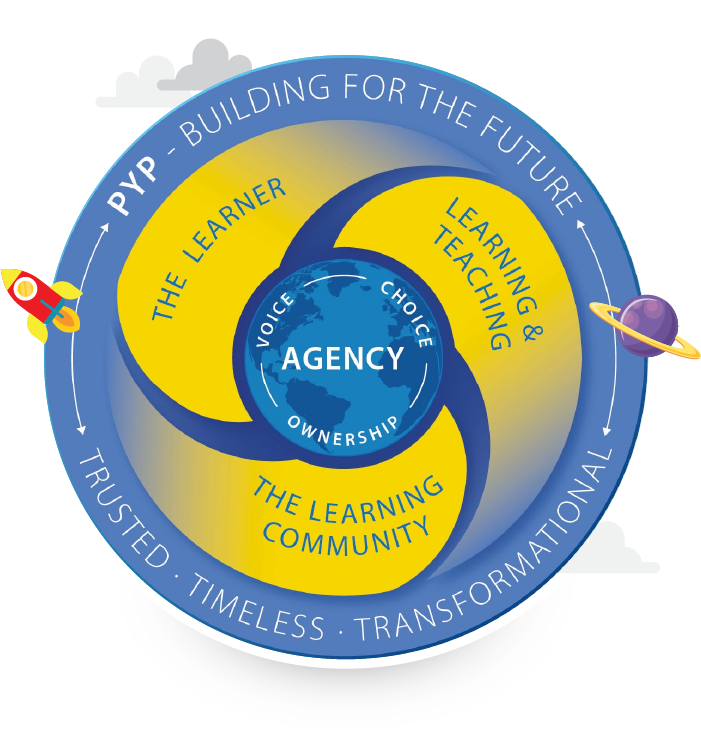
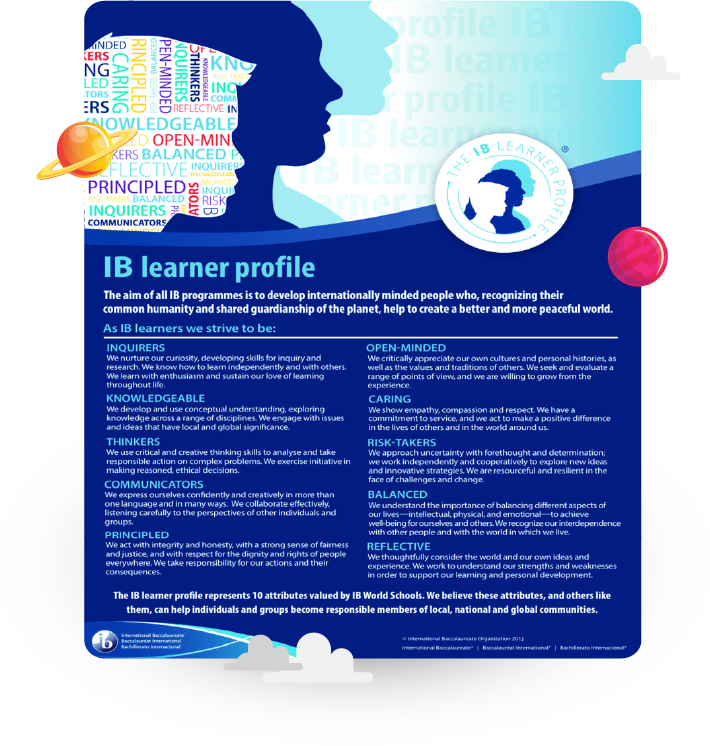
The PYP focuses on developing the child academically and holistically as an inquirer, both in and out of classrooms.
In promoting this aim, the programme is devoted towards developing the attributes of the IB learner Profiles among its students.
The PYP offers a comprehensive, inquiry–based approach to teaching and learning and provides an internationally designed model of agency where students take ownership of their learning. It incorporates strategies to focus on student’s multiple intelligences, teaching methodologies and approaches towards formative assessments.
The PYP nurtures independent learning skills, encouraging every student to take responsibility for their learning. The programme incorporates local and global issues into the curriculum, asking students to look at six related, transdisciplinary themes and to consider the links between them. (Source IBO.org)
The IB PYP programme is for children aged 3 – 12. The PYP is taught in more than 100 countries around the world and incorporates all the key subjects such as maths, science, languages and social studies, guided by six main themes:
• Who we are
• Where we are in place and time
• How we express ourselves
• How the world works
• How we organise ourselves
• Sharing the planet
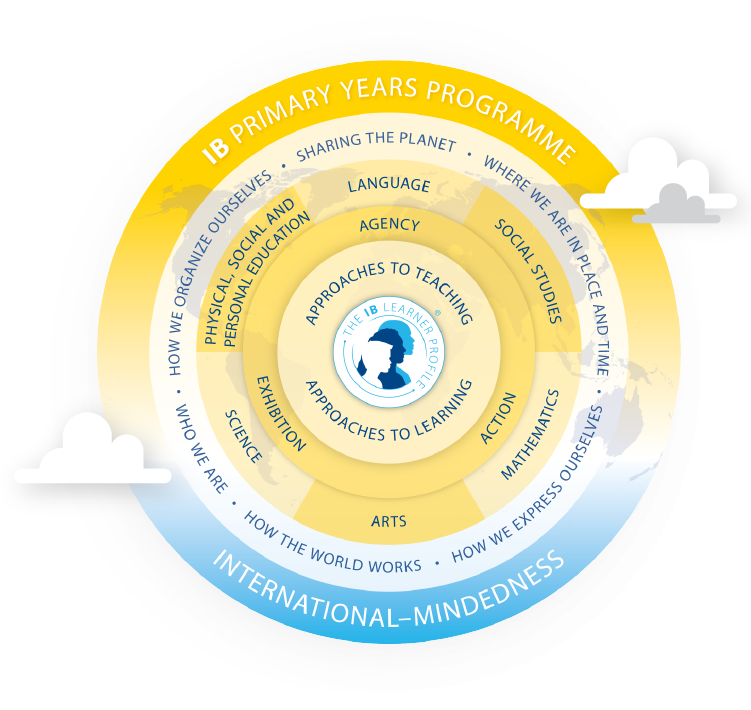
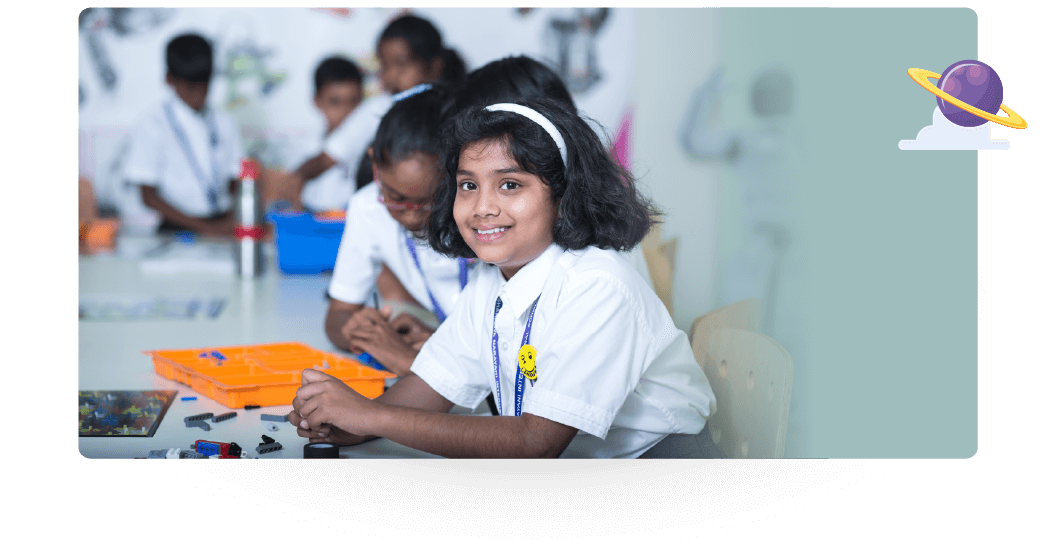
“Wisdom is not at the top of the graduate school mountain but at the bottom of the sand pile in school,” is an oft quoted quote that quite simply sums up how pivotal the early years of a child’s life are, and therefore his schooling. It is here in their primary years in school, we nurture a child’s imagination, give wings to his thoughts and lay the foundation for a fruitful life ahead. I couldn’t agree more with Robert Fulgham who said, “All I really need to know I learned in Kindergarten.”
It is the freedom of exploration, thinking and expression that kindles children’s natural curiosity, and hence the Primary Years Program (PYP) at SNIS provides these tiny tots the environment that nourishes and stimulates their active minds. Along with following the International Baccalaureate curriculum which allows children to get acquainted with a wide range of subjects through the process of inquiry at an early age, we also provide the infrastructure, teaching aids and tools that go hand in hand with our learning strategies. We firmly believe that it is not books alone that teach us; but in our surroundings we have a myriad channels flooding us with information constantly, and we don’t realize this till we have an opportunity to use it somewhere. Andhence at SNIS we strive to provide students a rich environment: be it in the way of language, behavior, knowledge or even etiquette. Our classrooms are lively, colorful and inviting, which make it comfortable for students to be in apprehensive and be themselves- the best way they will learn more.
We appreciate the fact that every child can learn- “may be not on the same day or in the same way.” Therefore, we try our best to provide individualized lesson plans, in that, we teach them the content in the way they best understand- be it math, language, art or music. Educational Psychology has provided more than required evidence about the plasticity of a child’s brain, that is his/ her brain is physically malleable and it can be tuned to function in a particular fashion when the relevant physical environment is designed and provided. But this magic lasts only till they attain puberty because their brain structures begin to ‘cement’ from puberty upwards, making it difficult (not impossible) to learn more. Thus the effort one will have to put in will need to be far greater to grasp newer things.
When so huge is our responsibility in shaping them as individuals, we cannot impart knowledge alone; we need to give them a moral compass as well. And who better to do this than our teachers! Schooling and learning is also a social process, where children make friends, seek challenges, fight odds, win laurels and grow as independent persons. All of this requires them to not only to learn information but also culture and values, because education as William Inge puts it, “is not only of facts but of values as well.”
SNIS boasts of a faculty of Primary Teachers, who are dedicated and well familiar with every child’s strengths and proclivity. Teachers, who know that they are not unassailable or inviolable authorities of knowledge, but are individuals who are lifelong learners and role models for values- those who in-spire, encourage and ignite a spark of discovery in a child that lasts a lifetime. As Carl Jung, the founder of Analytical Psychology phrased it, “One looks back with appreciation to the brilliant teachers, but with gratitude to those who touched our human feelings. The curriculum is so much necessary raw material, but warmth is the vital element for the growing plant and for the soul of the child.”
Over the years schooling has become a commercial venture- not just in terms of business, but even in its approach of acknowledging academic perfor-mance, grades, percentages and percentiles alone. It is sad that we have gradually begun to neglect the importance of primary education and focus largely on higher classes, exams and courses available for students to pursue. Children have their own talents, interests and flair- all of which cannot be measured and proved by securing marks alone; and it is with these beautiful, transformable and impressionable minds that we can do wonders.
Mark Twain once said,
“I never let my schooling interfere with my education.”
PYP at SNIS therefore does not aim to hone only one element- academics, but all elements of whole education: the building blocks of character.